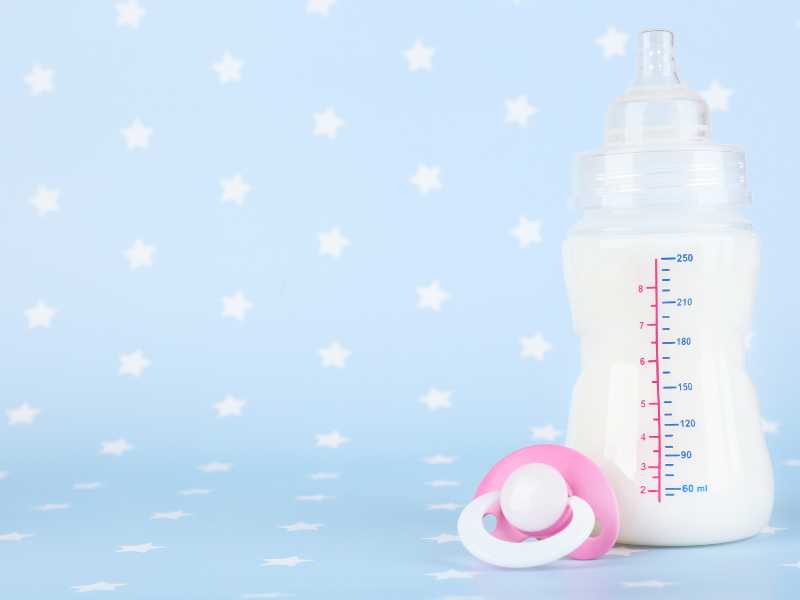These empowering breastfeeding tips for first-time moms will guide you through the nursing phase as a new mom.
Being a mom is a beautiful experience that comes with its own challenges, the fears and worries of taking care of a new baby for the first time, the home and also your healing process.
Breastfeeding a baby can be emotional and joyous at the same time, at times I see myself tearing when breastfeeding my baby, looking at the baby’s face while sucking, such a cute being.
The whole phase has a way of changing everything, it can be overwhelming, even when you are tired, the sight of your cutie will just empower you and you see yourself breastfeeding and nurturing, connecting intimately, it is a joyous journey!
While it’s natural, that doesn’t mean it always comes naturally, and that’s completely okay.
This post is here to help support you, encourage you, and remind you that you are not alone as you step into this new chapter.
21 EMPOWERING BREASTFEEDING TIPS EVERY FIRST-TIME MOM NEEDS TO KNOW.
1. Trust Your Body
Your body has been preparing for this moment for months even before your baby arrived.
 The colostrum (your first milk) is packed with antibodies and nutrients.
The colostrum (your first milk) is packed with antibodies and nutrients.
Even if you doubt your supply or ability, remind yourself that your body is built for this.
Confidence plays a huge role in milk production!
2. Start Early
 Nursing within the first hour after birth, when your baby is most alert, helps establish a strong latch and stimulates your milk supply.
Nursing within the first hour after birth, when your baby is most alert, helps establish a strong latch and stimulates your milk supply.
It also encourages bonding and stabilizes your baby’s vital signs. Hospitals often call this the “golden hour” for a reason.
3. Skin-to-Skin Contact Matters
 This is more than just a sweet cuddle.
This is more than just a sweet cuddle.
Skin-to-skin regulates your baby’s body temperature, reduces stress hormones (for both of you), and activates the baby’s instinct to find the breast and latch.
It also triggers oxytocin in you, which boosts milk letdown.
4. Get Comfortable Before You Feed
 You might be sitting there for 20–40 minutes, so it’s worth it to set up a cozy spot with pillows for your back, arms, or under baby.
You might be sitting there for 20–40 minutes, so it’s worth it to set up a cozy spot with pillows for your back, arms, or under baby.
A footstool or nursing chair can help, and don’t forget to breathe and relax your shoulders.
5. Learn the Signs of a Good Latch
 A poor latch leads to sore nipples and an unsatisfied baby.
A poor latch leads to sore nipples and an unsatisfied baby.
A good latch should feel like tugging, not pain. Baby’s lips should flare out, and most of the areola (not just the nipple) should be in their mouth.
Watch for deep sucking and listen for swallowing.
This is a very good breastfeeding tips for first-time-moms they should look out for.
6. Feed on Demand
 Forget the clock, your baby knows when they’re hungry.
Forget the clock, your baby knows when they’re hungry.
Early hunger cues are quieter (like rooting or sucking hands) than late ones like crying.
Feeding on demand supports healthy growth, emotional bonding, and better milk production.
7. Stay Hydrated and Nourished
 Breastfeeding uses up a lot of energy and fluids.
Breastfeeding uses up a lot of energy and fluids.
Drinking water and eating well-balanced meals helps keep your supply steady and your body feeling good.
Keep a water bottle and snack stash in your nursing area for easy access.
8. Don’t Ignore Discomfort
 Pain is not a normal part of breastfeeding.
Pain is not a normal part of breastfeeding.
If it hurts, check your latch or positioning. Sometimes just adjusting the baby’s angle can make a big difference.
And if soreness persists, reach out to a lactation consultant or your doctor.
9. Take Advantage of Lactation Consultants
 They’re like breastfeeding superheroes! Whether you need help with latching, supply, or even emotional support, they’re trained to guide you.
They’re like breastfeeding superheroes! Whether you need help with latching, supply, or even emotional support, they’re trained to guide you.
Many hospitals offer free consultations before you go home, and follow-ups can often be scheduled.
10. Your Milk Supply is Unique to You
 Don’t compare how much you pump with other moms.
Don’t compare how much you pump with other moms.
Some women respond differently to pumps than to baby’s suckling.
If your baby is gaining weight and having enough wet diapers (6–8 per day), you’re doing just fine.
This is another aspect of breastfeeding tips for first-time-moms they will need to understand and accept.
11. Cluster Feeding is Normal
 During growth spurts, babies nurse more frequently (sometimes hourly!).
During growth spurts, babies nurse more frequently (sometimes hourly!).
It’s their way of signaling your body to make more milk.
It can be exhausting, but it usually only lasts a day or two.
Cozy up, binge-watch something, and keep snacks nearby.
12. Breastfeeding Isn’t Always All or Nothing
 It’s okay if you supplement with formula or pumped milk.
It’s okay if you supplement with formula or pumped milk.
You’re still providing your baby with love and nourishment.
Every drop of breastmilk counts, and there’s no “perfect” way—only what works best for your family.
13. Burp Often
 Babies naturally swallow air while nursing, which can cause gas and fussiness.
Babies naturally swallow air while nursing, which can cause gas and fussiness.
Gently burp your baby mid-feed and after feeding.
Try over-the-shoulder, sitting up, or lying across your lap, find what works best for your little one.
It is a creative breastfeeding tips for first-time-moms.
14. Try Different Nursing Positions
 Cradle hold is common, but others like football hold (great for C-section recovery) or side-lying (amazing for nighttime) can help with latch, comfort, and even milk drainage.
Cradle hold is common, but others like football hold (great for C-section recovery) or side-lying (amazing for nighttime) can help with latch, comfort, and even milk drainage.
Don’t be afraid to switch it up.
15. Pump if Needed, But No Pressure
 Pumping can be helpful for storing milk, relieving engorgement, or allowing someone else to feed your baby.
Pumping can be helpful for storing milk, relieving engorgement, or allowing someone else to feed your baby.
But you don’t need to rush into it, wait until you’re comfortable with nursing and your supply is steady, usually around 4–6 weeks.
16. Surround Yourself with Support
 Breastfeeding can feel isolating, especially if you’re struggling.
Breastfeeding can feel isolating, especially if you’re struggling.
Find support through other moms, online forums, lactation groups, or friends who’ve been there.
Encouragement makes a world of difference when you’re having a tough day.
17. Watch for Engorgement
 When your milk comes in, your breasts might feel rock-hard and swollen.
When your milk comes in, your breasts might feel rock-hard and swollen.
Nurse often or hand-express just enough to soften them.
Cold compresses and gentle massages can also help prevent clogged ducts or mastitis.
18. You Can Breastfeed in Public—Confidently

You have the right to feed your baby wherever they’re hungry.
Use a nursing cover, a discreet top, or simply your confidence.
Practicing at home or in front of a mirror can help you feel more at ease.
This is one breastfeeding tips for first-time-moms they usually find difficult to do.
19. Practice Self-Care
 You’re giving so much of yourself, remember to give some care back to you.
You’re giving so much of yourself, remember to give some care back to you.
Rest when you can, eat nourishing meals, stretch, breathe, and talk to someone if you feel overwhelmed.
A healthy mom makes for a happier baby.
20. Breastfeeding Gets Easier Over Time
 The first few weeks are the hardest. Your nipples are adjusting, your baby is learning, and you’re running on little sleep.
The first few weeks are the hardest. Your nipples are adjusting, your baby is learning, and you’re running on little sleep.
But hang in there—most moms say it becomes second nature with time and practice.
21. You’re Doing an Amazing Job
 Even on your most exhausted days, remind yourself that you are showing up and giving your baby what they need.
Even on your most exhausted days, remind yourself that you are showing up and giving your baby what they need.
Whether your journey is long or short, your effort is love in action, and that’s something to celebrate.
HOW CAN I INCREASE MY MILK SUPPLY NATURALLY?
1. Nurse Frequently and On Demand
 Your breasts work on supply and demand.
Your breasts work on supply and demand.
The more your baby nurses, the more milk your body will make.
Don’t worry about a set schedule, follow your baby’s hunger cues and let them nurse as often as they like.
2. Ensure a Deep, Proper Latch
 A poor latch can make your baby work harder and remove less milk, signaling your body to make less.
A poor latch can make your baby work harder and remove less milk, signaling your body to make less.
If you’re not sure about the latch, get support from a lactation consultant, they can work wonders in just one session.
3. Offer Both Breasts During Feedings
 Start with one breast, and once the baby slows down, offer the second.
Start with one breast, and once the baby slows down, offer the second.
This double stimulation helps empty the breasts and encourages your body to make more milk for the next feed.
4. Pump Between Feedings
 If your baby sleeps long stretches or you’re trying to boost output, pumping for 10–15 minutes between nursing sessions (especially in the early morning) can stimulate extra milk production.
If your baby sleeps long stretches or you’re trying to boost output, pumping for 10–15 minutes between nursing sessions (especially in the early morning) can stimulate extra milk production.
5. Stay Hydrated
 Drink plenty of water throughout the day. Your body needs fluids to produce milk.
Drink plenty of water throughout the day. Your body needs fluids to produce milk.
Try sipping water every time you sit down to feed.
Herbal teas like fenugreek, blessed thistle, or lactation blends can also support milk flow.
6. Eat Nourishing, Milk-Boosting Foods (Galactagogues)
 Certain foods may help some moms boost milk supply. These include:
Certain foods may help some moms boost milk supply. These include:
Oats
Brewer’s yeast
Flaxseeds
Almonds
Spinach
Garlic
Fennel Try lactation cookies or smoothies loaded with these ingredients!
7. Avoid Skipping Meals
 Breastfeeding burns a lot of calories! Eat regular, balanced meals rich in whole grains, protein, healthy fats, and veggies.
Breastfeeding burns a lot of calories! Eat regular, balanced meals rich in whole grains, protein, healthy fats, and veggies.
Don’t diet aggressively, your body needs fuel to keep producing milk.
8. Rest and Reduce Stress (As Much As You Can)
 Stress and exhaustion can affect your milk supply.
Stress and exhaustion can affect your milk supply.
Nap when your baby naps, accept help when offered, and create a peaceful feeding space.
Deep breathing, gentle music, or even a short walk can help your body relax and boost oxytocin, the hormone that helps with milk letdown.
9. Try a Warm Compress or Breast Massage
 Before feeding or pumping, place a warm compress on your breasts or do a gentle massage.
Before feeding or pumping, place a warm compress on your breasts or do a gentle massage.
It helps stimulate flow and soften the tissue for better milk release.
10. Avoid Pacifiers or Bottles Early On (if possible)
 If you’re focusing on establishing supply, it’s best to let your baby nurse often and avoid substitutes that might reduce time at the breast.
If you’re focusing on establishing supply, it’s best to let your baby nurse often and avoid substitutes that might reduce time at the breast.
Once supply is well-established (around 4–6 weeks), you can introduce bottles if needed.
Breastfeeding is a journey, sometimes smooth, sometimes bumpy, but always beautifully unique to you and your baby.
As a first-time mom, you’re learning and growing right alongside your little one, and every feed is a step toward connection, comfort, and confidence.
Know that, there’s no one-size-fits-all approach. Trust your instincts, give yourself grace, and don’t hesitate to ask for support when you need it.
Even if you breastfeed for weeks, months, or beyond, know that you are doing an incredible job. You are strong, capable, and more than enough
|
ReplyForward |
Leave a Reply